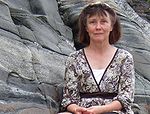Difference between revisions of "India2011- Digital Linguistics"
(→Keynote Talks) |
|||
| Line 26: | Line 26: | ||
===Construction Types - multilingual=== | ===Construction Types - multilingual=== | ||
[[Image:LarsByM.jpg|thumb|150px|left|Lars Hellan|Professor Hellan is...]] | [[Image:LarsByM.jpg|thumb|150px|left|Lars Hellan|Professor Hellan is...]] | ||
| + | |||
| + | |||
| + | |||
| + | |||
| + | |||
| + | |||
| + | |||
| + | |||
| + | |||
| + | |||
| + | |||
| + | |||
==Workshop== | ==Workshop== | ||
| Line 37: | Line 49: | ||
more soon | more soon | ||
| + | |||
| + | |||
| + | |||
| + | |||
| + | |||
Revision as of 19:37, 5 May 2011
In October 2011, NTNU will arrange a week-long event, called India 2011, with India as the theme. The focus will be on broad cooperation
in culture, research, higher education and business.The present arrangement between the University of Hyderabad and the Institute of Languages and
Communication Studies and the Institute of Modern Languages at NTNU has Indian languages as its focus.
The arrangement of a several talks and workshops, announce here, is part of the NTNU's India week.
India is a continent of many languages. Ethnologue [1] refers to 452 listed languages of India. The nation is not only rich in languages. Grounded on work dating back to Pāṇini, Indian linguistics has had a significant influence on the development of linguistics as we know it today.
Contents
Digital Language Description, Knowledge Representation and Formal Linguistics for Indic Languages
More about the theme and about the importance to combine linguistic description with digital Knowledge Representation, on the one side and formal approaches to language description on the other.
Keynote Talks
Several Keynote talks will address central issues in the digitisation and formalisation of Indic languages
Construction Types - multilingual
Workshop
In a workshop on Digital Language Description, Knowledge Representation and Formal Linguistics, linguists from Hyderabad and Trondheim will work together on the representation and formalisation of some of the salient aspects of selected languages from the Dravidian, the Indo-Aryan and the Austro-Asiatic language families of India.
Using natural language processing tools and linguistic web-technology developed at University at Hyderabad and at NTNU, we will create small research corpora which we will annotate for salient linguistic properties with the goal of deriving Attribute Value Matrix Notations from these annotations.
Workshop talk Collaborative corpus creation - qualitative and quantitative linguistic methods
more soon
References
- ↑ Lewis, M. Paul (ed.), 2009. Ethnologue: Languages of the World, Sixteenth edition. Dallas, Tex.: SIL International. Online version: http://www.ethnologue.com/.


